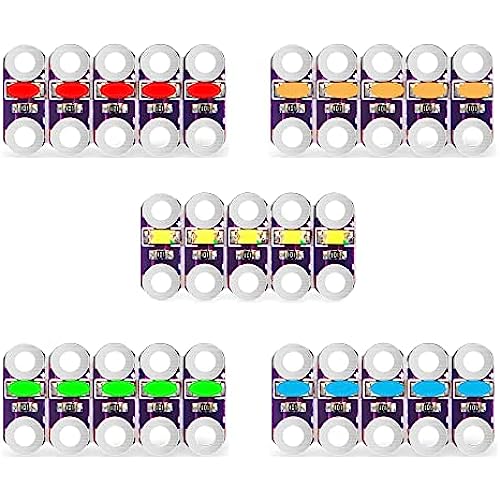
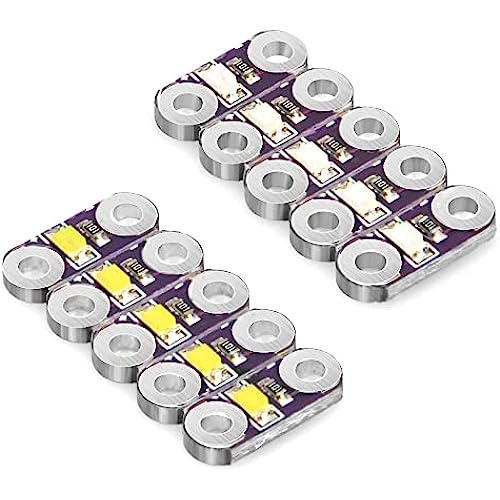
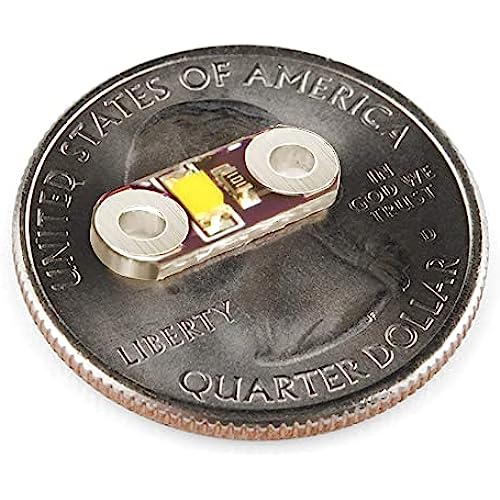
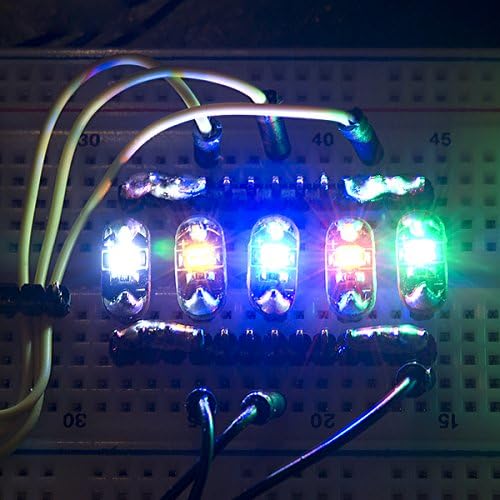
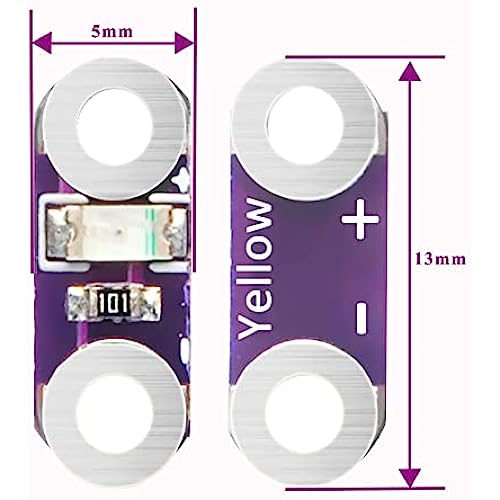
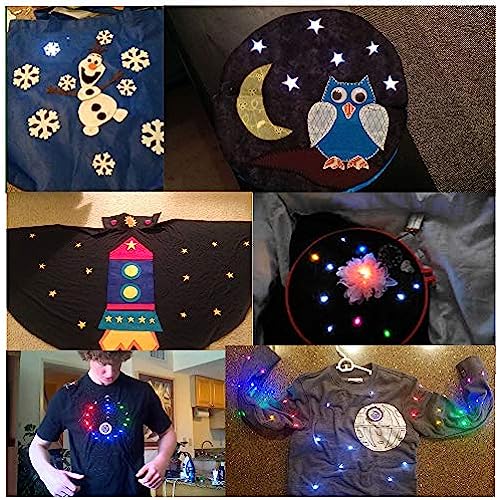
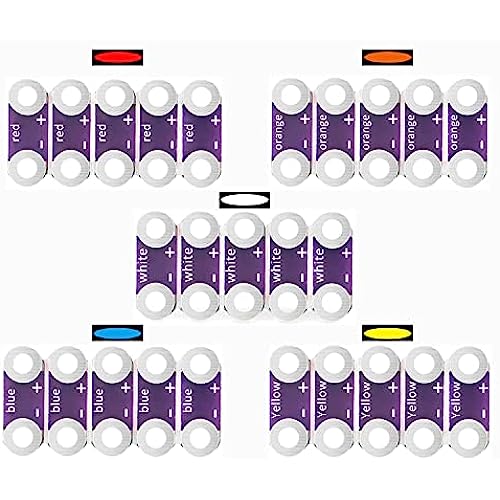







KOOKYE Lilypad LEDs Red/Yellow/White/Blue/Green (25x Lilypad LED) Wearable E-Textile Sewable Electronicsfor Arduino Rapsberry Pi Microcontroller Board
-

Jeanie M Battista
> 3 dayI bought these to add to a LilyPad kit I purchased. They work great and are a decent price compared to others I looked at. My daughters and I used them to make light up masks.
-

Rouhollah Aghasaleh
> 3 dayI’ve used these for science activities in my classroom. They work perfectly in paper circuits and etextile projects.
-

Hurricane Mitch
> 3 dayThese work just fine. I used a few on a glove wearable project and they were super bright.
-

Elizabeth Kinzer
> 3 dayThese worked (I used them for a STEAM class for elementary school) although I’ll note that some of the colors are more vibrant than others.
-

Gunnar Vogtmann
> 3 dayI knew they were small but boy are they small. I thought the cables for installation came with but I was wrong. I do have the cables needed so I’ll still be able to get the project done. I tested them all prior to using them because it’s something I do with any just received lights. It’s just easier now instead of finding a non working one later. I’m happy with the quality of them and would purchase them again. Four Stars!!!
-

Trung
> 3 dayAll working out of the box. Nice set of lilypad leds. Voltage is 3 volts. Decent soldering on all of them.
-

Jaqueline Hahn
> 3 dayVienen pegados y es complicado separar los leds ...
-

D. Porrey
> 3 dayThese will come attached but are very easy to break apart. Nice small design with good size pads for easy soldering. These have a built in 150 Ohm resistor (R) so they can be connected directly to a voltage supply.
-

DisseminateJoy
09-06-2025I use these to light my LEGO City, and they are fantastic. My wife is using them to illuminate the cards she makes.
Related products








